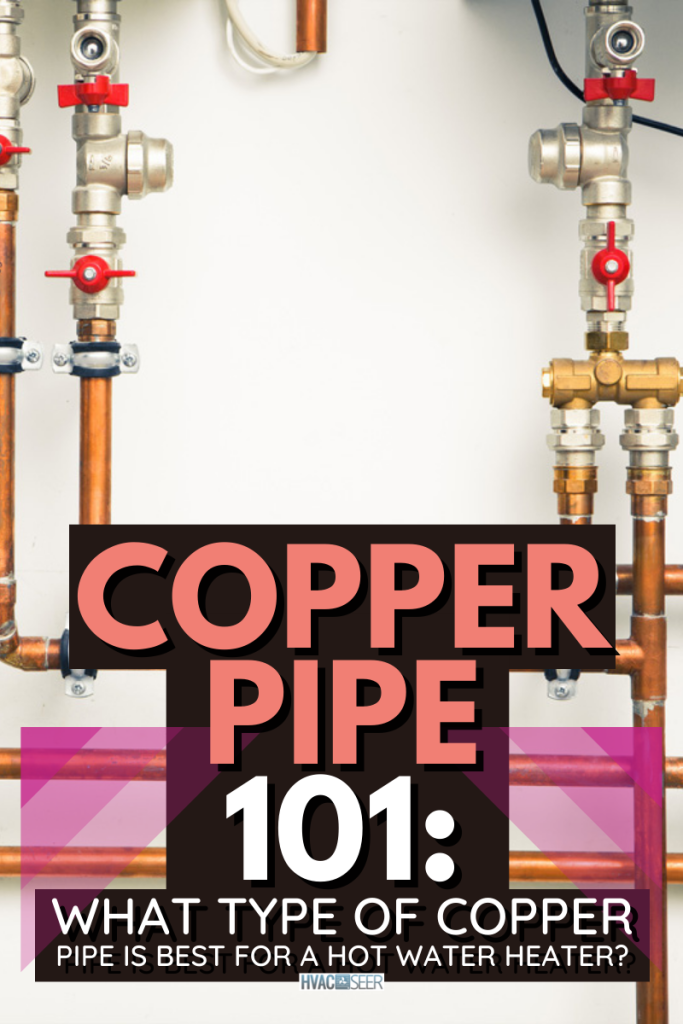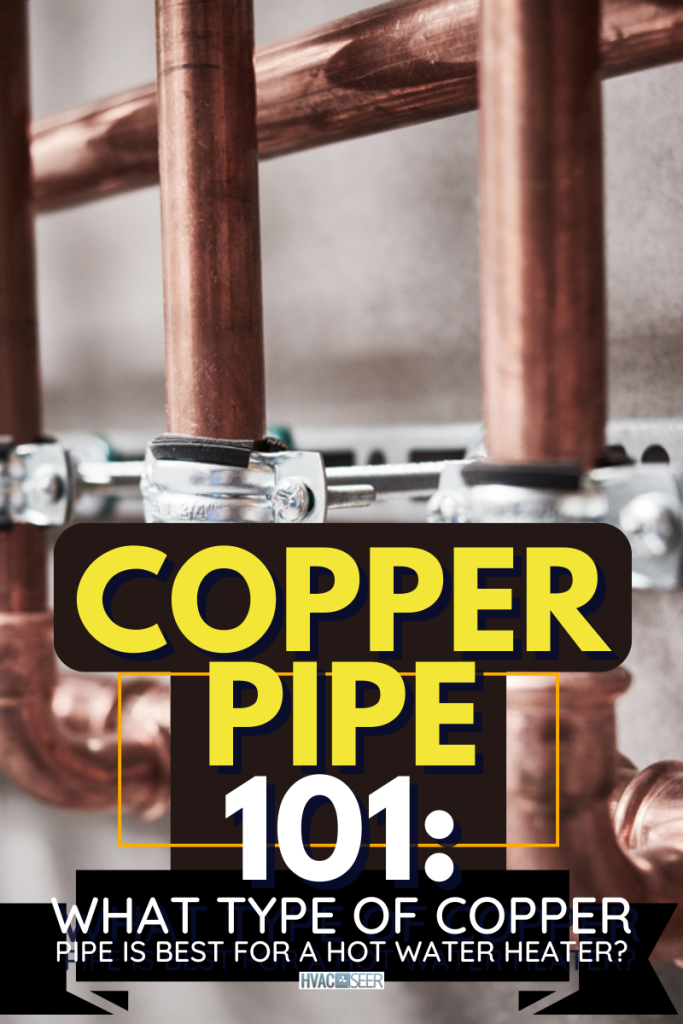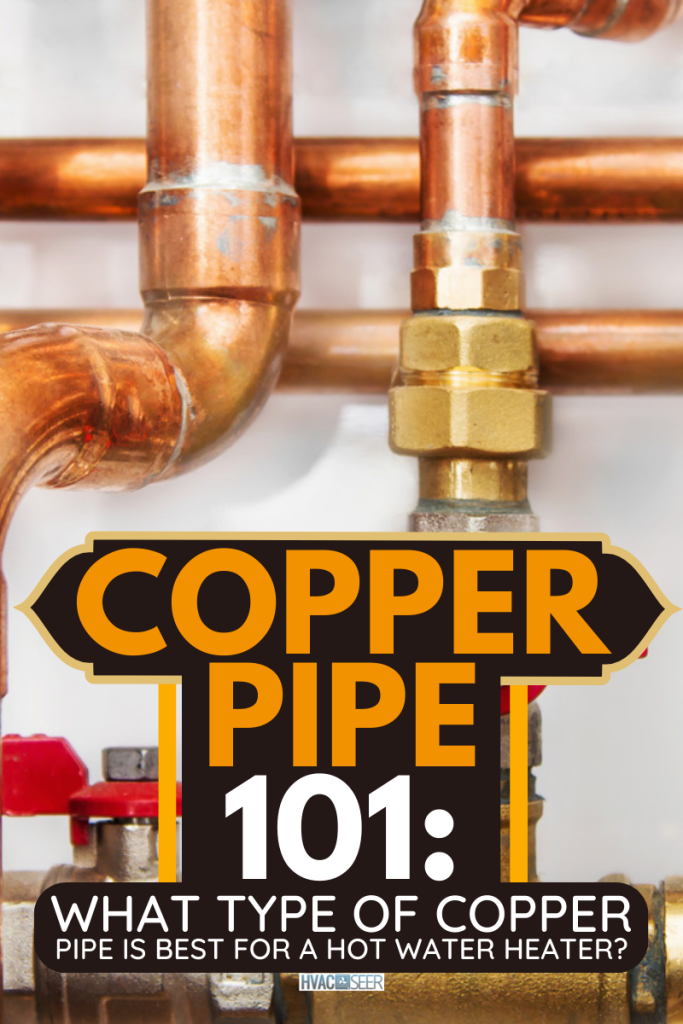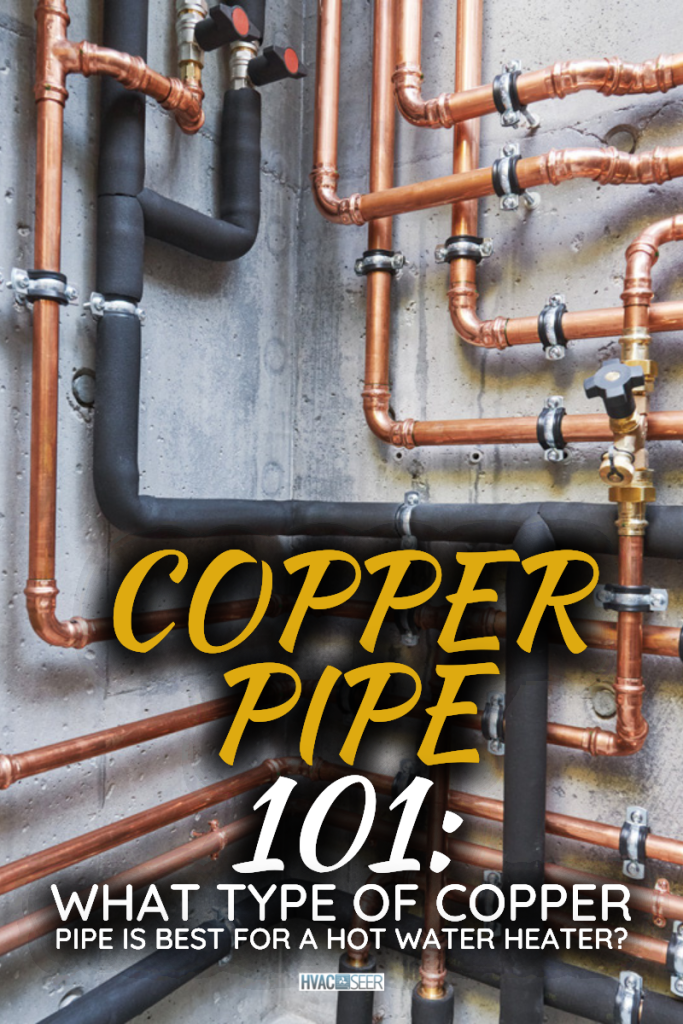When it comes to choosing the best type of copper pipe for a hot water heater, homeowners and professionals alike have several options to consider. Copper pipes are known for their benefits, and it has the ability to transport both hot and cold water. This is why they are commonly used in residential and commercial construction.
It's essential for homeowners and professionals to weigh the benefits and drawbacks of each copper pipe type before making a decision for their hot water heater installation. Factors such as local building codes, plumbing system requirements, and overall desired performance can significantly influence the best choice of copper pipe for each individual situation.
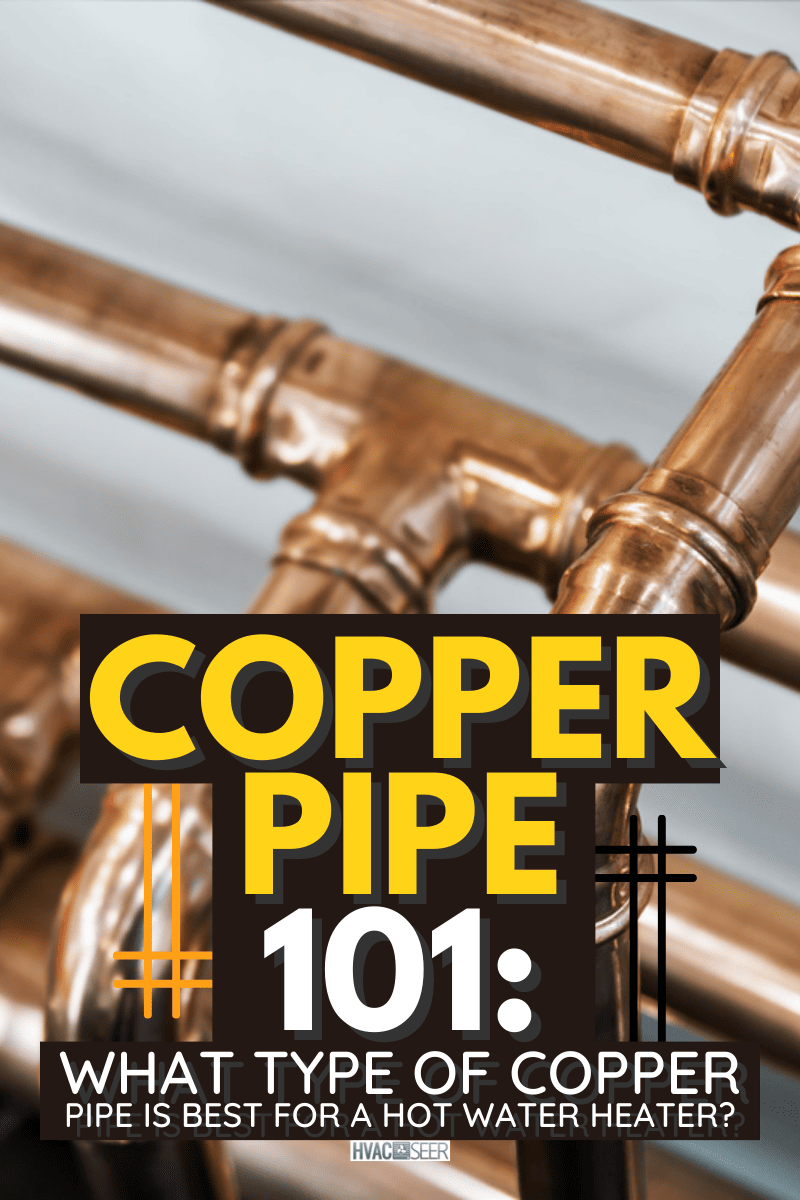
What Are Copper Pipes?
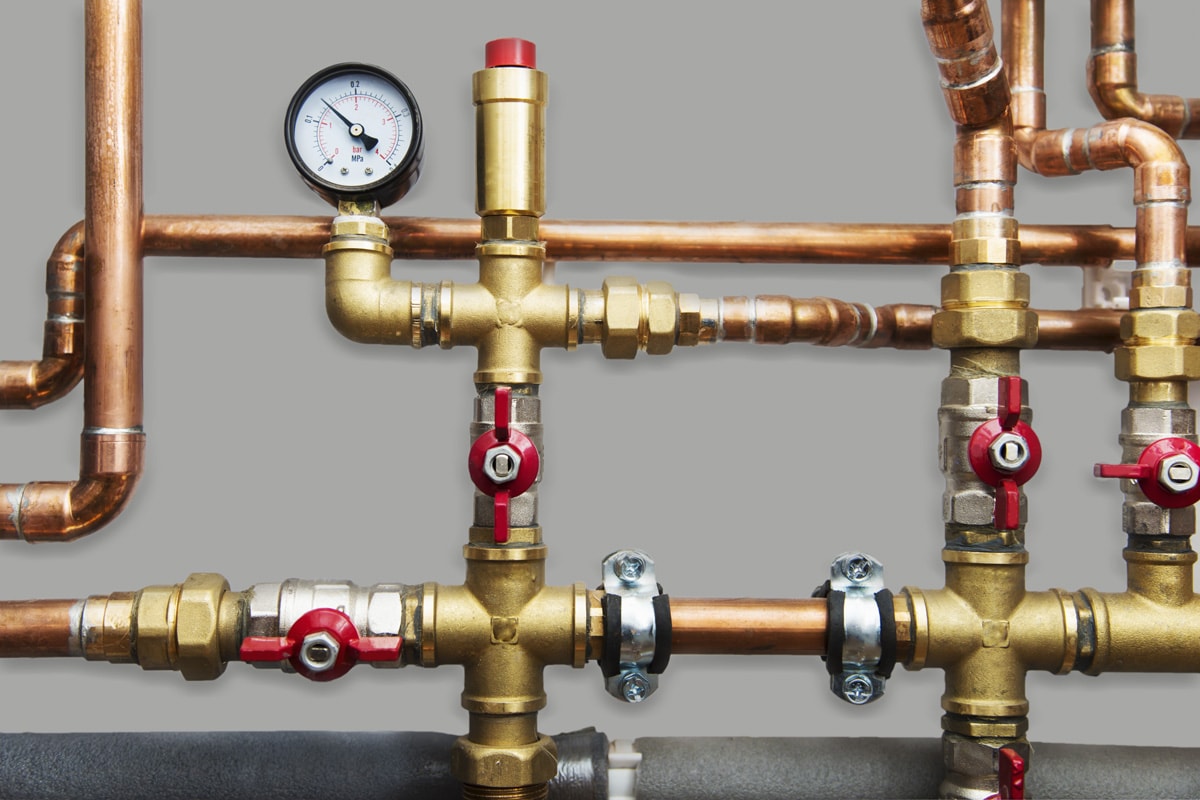
Copper pipes are a popular choice for various plumbing applications due to their durability, corrosion resistance, and excellent thermal conductivity. They are commonly used for supply and distribution of potable water as well as in hot water heater installations. There are several types of copper pipes available, each with specific characteristics and uses.
Types of Copper Pipes
When selecting a copper pipe for your hot water heater, it's essential to choose the most suitable type for your specific needs. Copper pipes come in various types designed for different applications. This section will discuss the three most common types used in residential and commercial construction: Type K, Type L, and Type M.
Type K Copper Pipe
Type K copper pipe is the thickest and most robust type of copper pipe available. It is commonly used for outdoor plumbing projects—such as underground water services—due to its increased wall thickness and durability.
Also, Type K copper pipes can handle high water pressure and are resistant to corrosion. This makes them suitable for hot water heater applications when extra strength is required.
Type L Copper Pipe
Type L copper pipe is less thick than Type K but still offers excellent strength and protection. It is widely used in both residential and commercial plumbing for water supply lines, including hot water systems.
One quality of the Type L copper pipes is that they are resistant to corrosion, can handle high water pressure, and are tolerant of hot and cold temperatures. This makes them a suitable choice for hot water heaters in most situations.
Type M Copper Pipe
Type M copper pipe is the thinnest and lightest of the copper pipes, making it the most affordable option. It is often used for in-wall household plumbing but may not provide the same level of strength and durability as Type K or Type L.
While Type M can be used for hot-water heating systems, it might not be the best choice for hot-water heaters if the pipes are exposed to high pressure or other factors that could compromise their integrity.
Copper DWV
This type of pipe is designed specifically for drain-waste-vent applications in older homes. Although not as commonly found as the other types, it is crucial for maintaining adequate wastewater flow and ventilation in these structures. Your plumber will suggest if this type of copper pipe is suitable for your home.
Comparing Copper Pipe Types
When choosing the best copper pipe for a hot water heater, it's important to compare the different types available, specifically Type K, Type L, and Type M. Each type has its pros and cons, and understanding these properties can help make an informed decision.
Wall Thickness
One major difference between the three types of copper pipes lies in their wall thickness. Type K has the thickest walls, making it the most durable option, followed by Type L and then Type M with the thinnest walls.
Thicker walls provide more strength and can better handle high pressure, which can be important for hot water heater installations where pressure and temperature fluctuations are common.
Corrosion Resistance
All copper pipes provide natural corrosion resistance thanks to the presence of a protective oxide film. However, some types may offer slightly better resistance to specific corrosive agents.
Type K and Type L pipes, with their thicker walls, potentially provide better protection against corrosion over time. Still, all copper pipe types are generally suitable for hot water heater installations.
Cost
The cost of copper pipes varies primarily based on their wall thickness. Since Type M has the thinnest walls and requires less material, it tends to be the most affordable option. Type L is a mid-range choice, while Type K, with the thickest walls, is often the most expensive.
When considering the best copper pipe for your hot water heater, it's important to weigh the potential benefits of each type against its associated cost.
Selecting the Best Copper Pipe for Hot Water Heaters
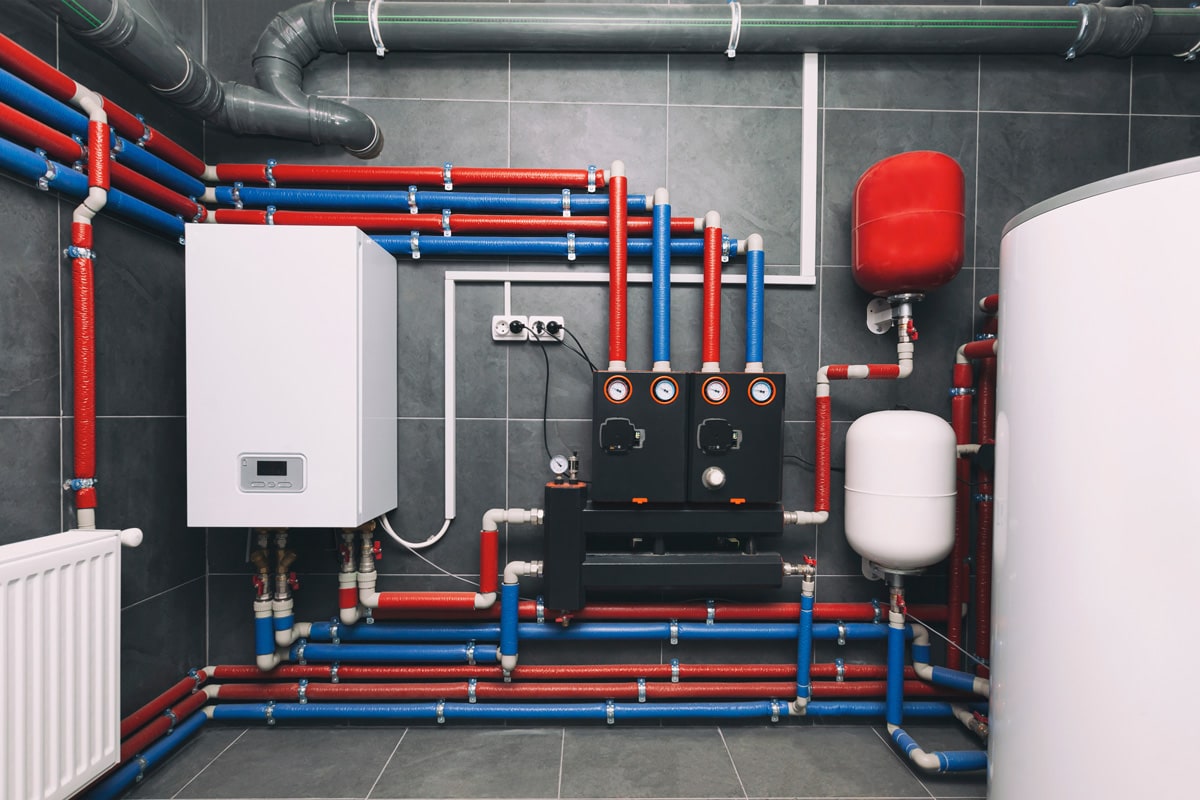
When it comes to choosing the best copper pipe for hot water heaters, it's essential to consider the different types of copper pipes available and their specific uses. The three most common types of copper pipes used in residential and commercial applications are Type K, Type L, and Type M, each offering unique characteristics and benefits.
Type K copper pipes are the thickest and most durable option among the three types. They have green markings and are ideal for underground use as well as in large commercial and industrial applications. However, their increased thickness and cost may not be necessary for residential hot water heater installations.
Type L copper pipes, marked with blue, are a popular option for various installations. This type of pipe has a thicker wall compared to Type M, making it more robust and resistant to corrosion. It's often used in both residential and commercial plumbing applications, making it a suitable choice for hot water heaters.
Type M copper pipes are the thinnest and most cost-effective choice for various residential projects. They have a red marking and are widely used in water and heating systems. However, it's important to check with local building codes and requirements, as some areas may not allow Type M for specific uses.
Generally, Type L copper pipes are a reliable and commonly used option for hot water heaters, providing a balance between durability and affordability. Nevertheless, always consult local regulations and a qualified plumber to ensure the appropriate type of copper pipe is used for your hot water heater installation.
Installation Tips
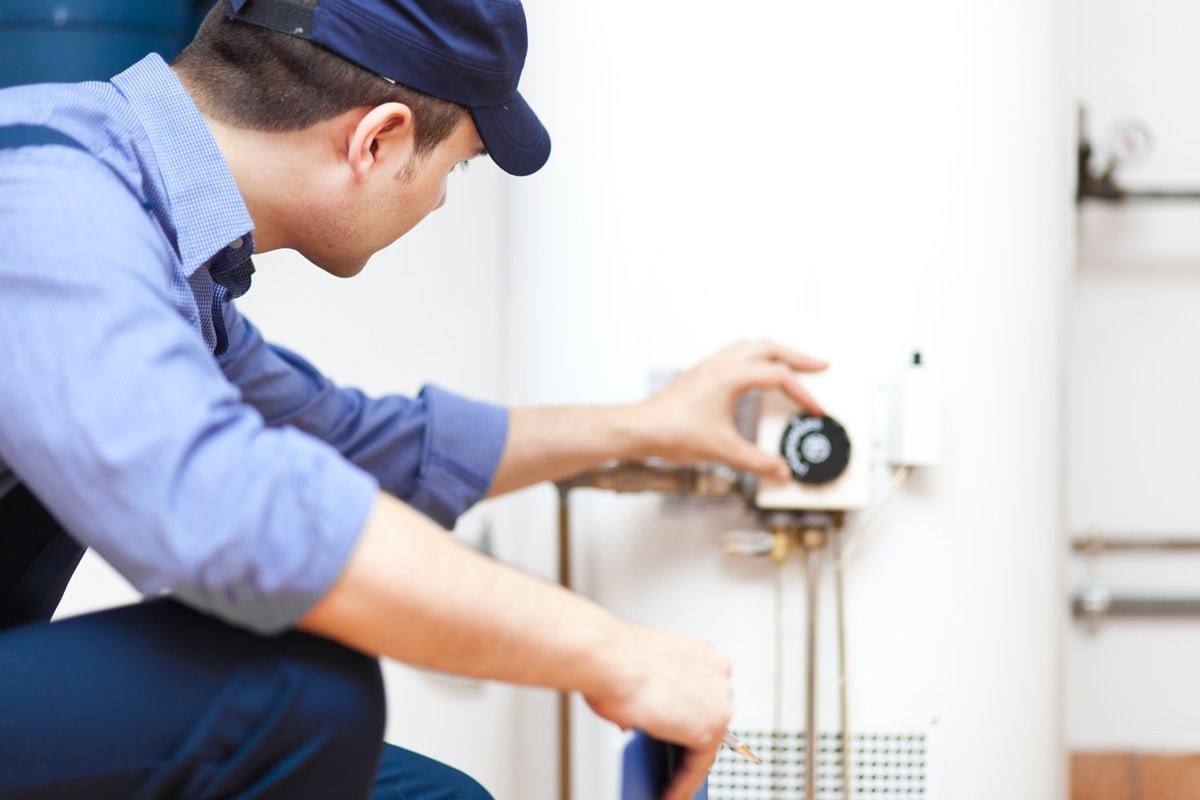
When it comes to installing copper pipes for a hot water heater, there are certain factors that can ensure a proper and efficient setup. It is important to consider proper soldering techniques and the use of dielectric unions in your installation. Following these tips will provide a safe and effective water heater system.
Proper Soldering
The first step in ensuring a good connection between your copper pipes and hot water heater is to properly solder the joints. To achieve this, follow these simple steps:
- Clean the pipe and fittings: Before soldering, it's essential to clean the copper pipe and fittings using a brush or fine sandpaper. This will help create a strong bond between the pipe and the solder.
- Apply flux: Use a brush to coat the inside of the fitting and the outside of the pipe with flux. This will not only help the solder flow smoothly into the joint but also prevent oxidation.
- Heat the joint: Using a propane torch, heat the joint evenly until the flux begins to bubble. Avoid overheating, which may cause damage to the pipe or fittings.
- Apply solder: Touch the solder to the heated joint and allow it to melt and flow into the connection. You will know you have applied enough solder when a small bead forms around the joint.
- Cool and inspect: Allow the joint to cool naturally, and then wipe off any excess flux with a damp cloth. Inspect the joint to ensure it has been properly sealed.
Using Dielectric Unions
Dielectric unions are essential when connecting copper pipes to a hot water heater, as they prevent galvanic corrosion between the copper pipes and the steel connections on the heater. Here is how to install a dielectric union:
- Inspect the union: Ensure you have the appropriate size and configuration of the dielectric union for your hot water heater and copper pipes.
- Assemble the union: Thread the dielectric fitting onto the threaded connection of the hot water heater. Make sure to use a wrench to tighten the fitting securely.
- Connect the pipes: With the dielectric union in place, solder the copper pipe to the corresponding connection on the dielectric fitting. Allow the joint to cool before proceeding.
- Tighten the union: Once the soldered joint is cool, use a wrench to tighten the nut on the dielectric union, completing the connection between the hot water heater and the copper pipes.
By following these installation tips, you can create a safe and efficient hot water heater setup, making use of the best copper pipe system for your home.
Pipe Away!
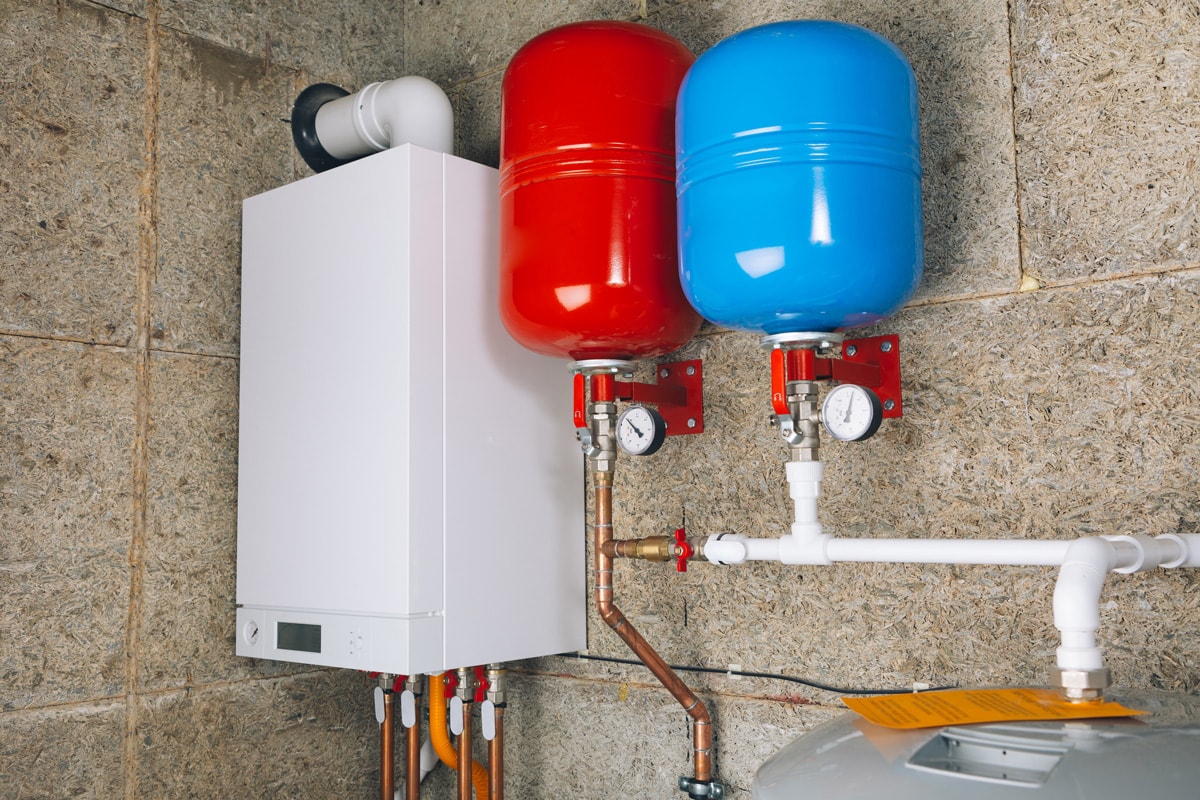
When selecting the best type of copper pipe for a hot water heater, always remember to consider the specific needs of your project. Examining the key differences of the copper pipes will help you make the best decision for your hot water heater.
For hot water heating systems, both Type L and Type K copper pipes are suitable choices depending on the required pressure and budget constraints. As for water heater supply lines, you may want to consider corrugated copper because it reduces the noise of the water flowing through your system.
Now that you've chosen the best copper pipes for your home, it's essential to evaluate your specific needs and local regulations before making a final decision. By carefully considering factors such as durability, installation requirements, and budget, you can select the ideal type of copper pipe for your hot water heater project.
Read more about pipes here: What Size Copper Pipe Do I Need For Water Lines?

